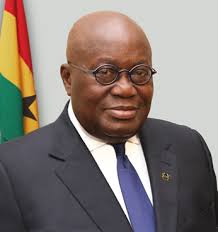Majority (54%) Of Ghanaian Respondents In A Poll Call For President Akuffo-Addo To Resign

A Global InfoAnalytics survey shows that more than half of respondents agreed with calls for President Nana Addo Dankwa Akufo-Addo to resign.
It was a snap poll that saw 54% of the responses in support of the resignation, 40% were against it, while the remaining six did not give their opinion on the subject matter.
In a related poll, 78 percent of respondents agreed that the Economic Management Team, led by Vice President Dr. Mahamudu Bawumia, should be removed as a result of the economic crisis, while 18 percent disagreed and 4 percent did not comment.
The poll also suggested that 12 percent of respondents felt the economic recovery address by the President was inspiring.
25 percent said it was uninspiring. While 22% said the speech addressed the major issues, 38 thought it did not address the main issues.
In addition, the poll sought the views of respondents on the recent speech by former President, John Dramani Mahama.
For the analysis, only 11 percent said it was inspiring, nine percent said it was uninspiring.
38 percent said it addressed the major issues, whilst 11 percent said it did not address the issues and six percent did not have an opinion.
One question the poll posed was which of the speeches gave hope. 56 percent said John Mahama’s speech gave more hope as compared to Nana Akufo-Addo’s speech.
16 percent said Nana Akufo-Addo’s speech gave hope; 15 percent said none inspired hope, while 11 percent mentioned that both speeches gave hope.
On who respondents trust to better manage the crisis if elected, 43% of respondents backed John Dramani Mahama and 17% backed Alan John Kyerematen.
14% backed Dr Mahamudu Bawumia, 8% backed Kennedy Agyapong, 1% backed Dr Kwabena Duffuor and 19% prefer someone else.
Sample size for the poll was 1407. The sample size was allocated to all 16 regions based on total number of voters in each of the regions as per the EC 2020 register, with an estimated voter population of 17 million.
Voters were interviewed randomly in all the regional capitals. Interviews were conducted between October 31, 2022, and November 1, 2022.
